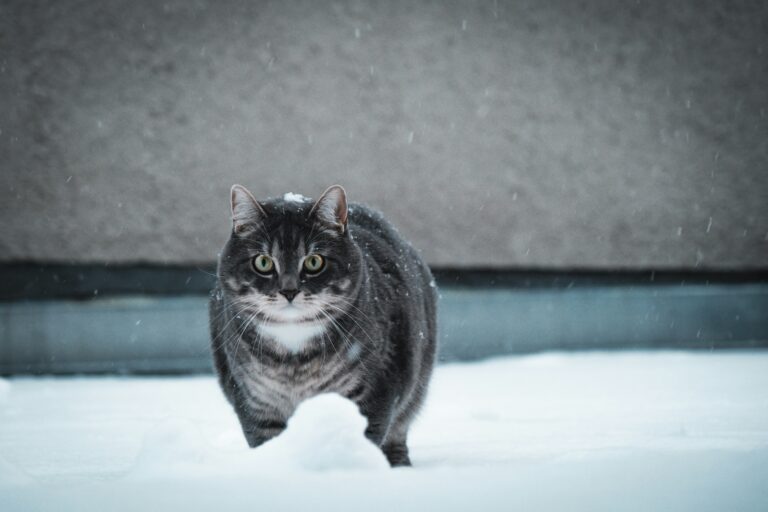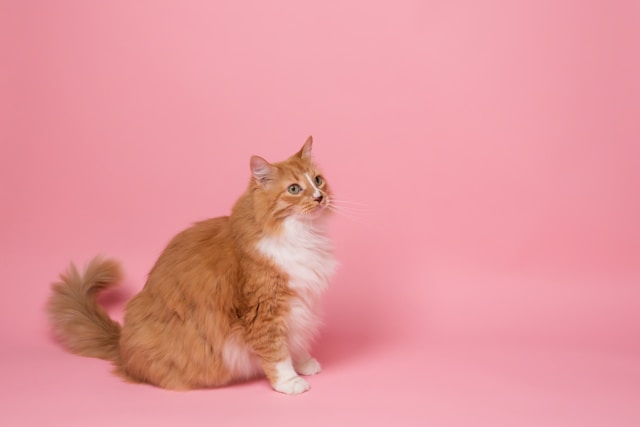
Obesity in cats is a growing problem that affects the health and well-being of our feline friends. Just like in humans, excess weight in cats can lead to a series of serious health complications and reduce their quality of life.
In this article, we will explore the causes, symptoms, risks, and prevention and treatment strategies for obesity in cats.
Causes of Obesity in Cats
The obesity in cats can be caused by a combination of factors, including excessive food intake, lack of exercise, genetic predisposition, old age, and even underlying medical conditions such as hypothyroidism.
Moreover, the type of diet and the quality of food can play a significant role in the development of feline obesity.
Symptoms of Obesity in Cats
The symptoms of obesity in cats can vary, but common signs include increased body weight, accumulation of fat around the abdominal area, difficulty in moving, and lack of energy.
Owners may also notice that their cats have difficulty in grooming themselves properly due to lack of flexibility caused by excess weight.

Health Risks
Obesity in cats is associated with a range of health risks, including diabetes mellitus, heart diseases, joint problems, respiratory issues, liver disorders, and reduced life expectancy.
Therefore, it’s crucial to address the problem as early as possible to avoid serious complications.
Prevention and Treatment
Prevention and treatment of obesity in cats involve a multifaceted approach. This includes controlling food intake, offering a balanced and high-quality diet, providing adequate and stimulating exercise, and regularly consulting a veterinarian to monitor the cat’s weight and health.
Additionally, adjustments in the diet may be necessary, such as transitioning to weight-loss-specific foods.
Conclusion
In summary, obesity in cats is a serious issue that requires proper attention and intervention.
With awareness, proper care, and preventive measures, we can help our feline friends achieve and maintain a healthy weight, thus ensuring a long and happy life.
Always remember to consult a veterinarian for specific guidance on your cat’s diet and weight management, as each case is unique and requires an individualized approach.
Obesity in Cats
Frequently Asked Questions
Obesity in cats is a condition in which the animal accumulates an excessive amount of body fat, compromising its health and well-being.
Obesity in cats can be caused by a combination of factors, including inadequate diet, lack of exercise, genetic predisposition, and even underlying medical issues.
You can assess your cat’s weight through simple methods, such as feeling the ribs and waist of the animal. An obese cat may have difficulty feeling the ribs and may exhibit a lack of definition in the waist.
Obesity in cats can increase the risk of a range of health issues, including diabetes, heart diseases, joint problems, and even reduced life expectancy.
To help a cat lose weight, it’s essential to adjust its diet to provide food with fewer calories, control food portions, and encourage appropriate physical exercise.
Yes, it is highly recommended to consult a veterinarian if you suspect that your cat is obese. An animal healthcare professional can provide personalized guidance on diet, exercise, and monitoring your cat’s weight loss.
If you suspect your pet is ill, immediately call your veterinarian. For health-related inquiries, always consult your veterinarian as they have examined your pet, know the pet’s health history, and can make the best recommendations for your pet.
